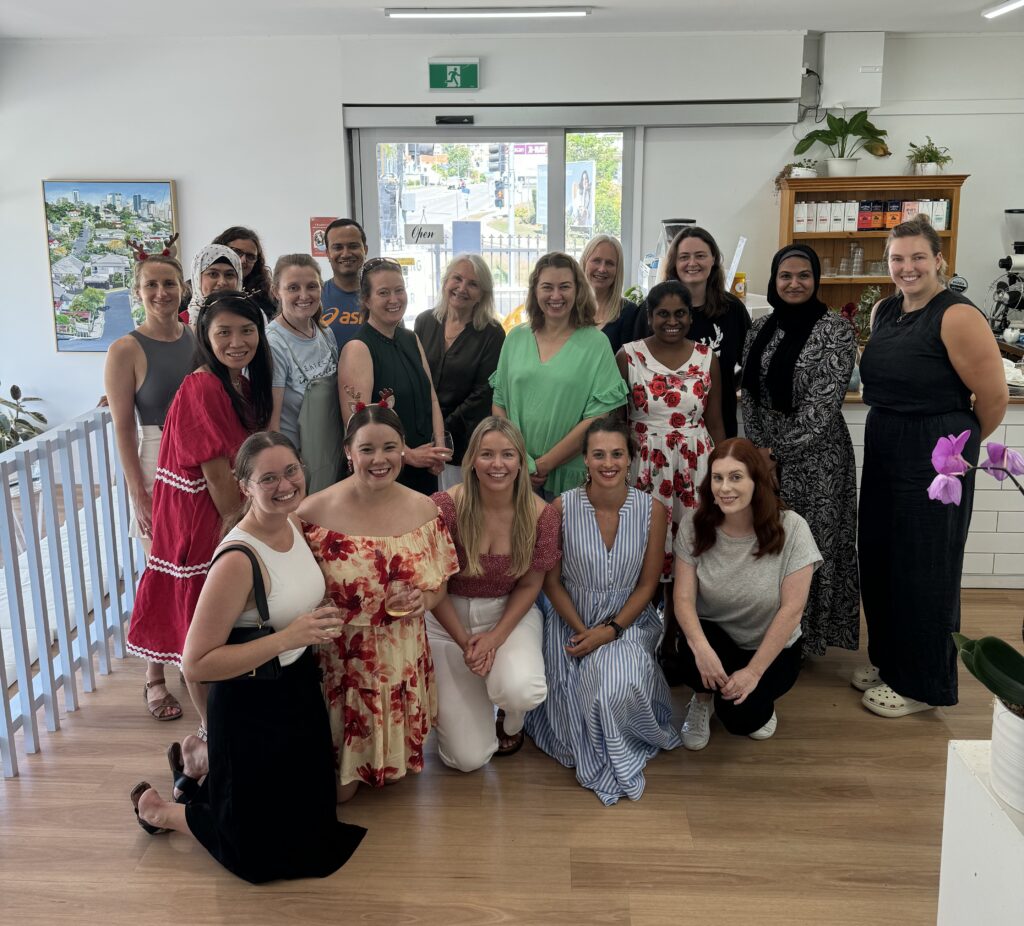
As we wrap up another great year, we would like to take the opportunity to express our heartfelt appreciation for your ongoing support throughout the year.
We are so proud of what we have been able to achieve through the power of collaboration and a shared commitment in reducing the devastating impact of perinatal loss on families. We have more work to do and look forward to working together on some more exciting projects in 2024.
During the festive season, we want to extend our love and support to all the parents out there, whether you are holding your child in your arms or in your heart. If you need support or would just like to talk to someone who understands, contact with RedNose, Pink Elephant or Bears of Hope.
A message from the directors:
Reflecting on the close of another busy and productive year working together to address stillbirth in Australia. Together, we stand proud of the progress achieved towards improving care and outcomes for families. From significant strides in Aboriginal and Torres Strait Islander and multicultural initiatives in adapting the Safer Baby Bundle resources, to the exceptional efforts updating the Clinical Practice Guideline for Care Around Stillbirth and Neonatal Death (soon to be released), compiling a list of key National Stillbirth Research Priorities and much more.
To our esteemed partners and collaborators; it has been an absolute pleasure working with each of you this year. A special thanks to all the parents involved across the Stillbirth CRE, your experience and stories are so important and we are immensely grateful for your contributions. If you are a bereaved parent and would like to contribute meaningfully to stillbirth research, our resource ‘Getting Involved in Stillbirth Research: A guide for bereaved parents’ by the Project Engage team is available for free via our website.
Finally, a huge thank you to the incredible efforts of our team at the Stillbirth CRE HQ. Your exceptional work, support and dedication have been the cornerstone of our achievements this year and we couldn’t do this work without you.
We know this time of year can be difficult for families who have experienced the loss of a child and our thoughts are with you during this holiday season. Looking ahead to 2024, our commitment remains resolute—to further reduce the incidence of stillborn babies and to improving care for families navigating this tragedy. We look forward to continuing this important work in the coming year.
Prof Vicki Flenady and Prof David Ellwood
New culturally adapted Safer Baby resources
In October, we successfully launched the culturally adapted Safer Baby resources. Our aim is to provide Indigenous and migrant communities with tailored messaging and tools for a safer pregnancy. We are committed to working together to reduce stillbirth and improve maternal and child health outcomes.
To access the Safer Baby Bundle resources, please visit:

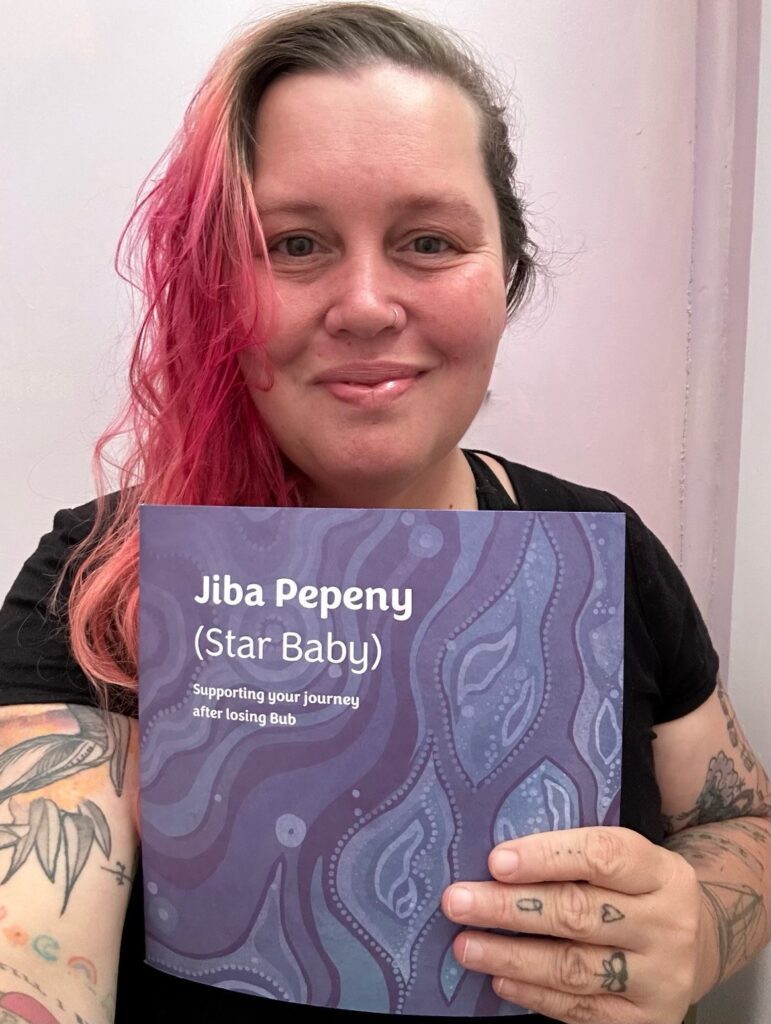
New Bereavement care resource for Aboriginal and Torres Strait Islander communities
Jiba Pepeny is a bereavement resource aimed at Aboriginal and Torres Strait Islander communities. It was developed by Skye Stewart, who is a Wergaia and Wemba Wemba woman from Mallee Victoria, through a Stillbirth CRE Indigenous scholarship.
This resource was designed to be given to families when they first hear the news about their baby passing away and it will stay with them for a few weeks to months after birth. It was developed to address the reality of there being no resources available for Aboriginal and Torres Strait Islander communities who experience disproportionately higher stillbirth rates than non-Indigenous communities.
Available soon, contact stillbirthcre@mater.uq.edu.au
Guideline
In October, the Stillbirth CRE submitted the 2024 edition of the Care Around Stillbirth and Neonatal Death Clinical Practice Guideline to the National Health and Medical Research Council (NHMRC) for approval. This edition of the guideline was developed by a multidisciplinary working group led by the Centre of Research Excellence in Stillbirth (Stillbirth CRE) in partnership with the Perinatal Society of Australia and New Zealand (PSANZ). This guideline represents our shared vision to improve care for parents and families who experience the tragedy of stillbirth or neonatal death.
This guideline includes 127 recommendations spanning seven major areas related to care around perinatal death.
Resources for putting the recommendations in place include a parent version of the guideline, guidance for audit and research activities, and information to support decisions about investigations.
The guideline will be available on our website in early 2024.
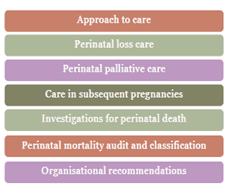
Placental consortium
The Stillbirth CRE Placental Consortium 2024 has been running seminars each month since April to engage researchers working in placental biology to discuss their work in the context of stillbirth. This year was another successful tour deforce of cutting edge research with international speakers joining the seminar program at odd hours of the day to present their work from the University of Auckland, Kings College London and Yale University. We had contributions from University of QLD, Griffith University, University of Western Sydney, University of Newcastle, University of Melbourne, Monash, Royal Women’s Hospital Melbourne, University of Technology Sydney and University of South Australia. A diverse range of topics were covered including placental inflammation, stress, placental insufficiency, mitochondrialdys function, extracellular vesicles, pre-eclampsia, gestational diabetes and detecting the small placenta in appropriately grown for gestational age fetuses.
There were calls for collaborations and several teams from across Australia are working together to examine placental dysfunction across the birthweight centile continuum including Dr Ashley Meakin, Dr Melanie Smith, Prof Janna L Morrison, Prof Claire T Roberts, Dr Martha Lappas, Dr Stacy Ellery, Dr Olivia Holland, Prof Anthony Perkins, A/Prof Adam Ewing, Dr Sharon McCracken, & Prof Vicki Clifton with exciting data showing the persistence of placental dysfunction in small appropriately grown for gestational age fetuses.
The seminars will continue into 2024 and publications and grant applications are expected from the work currently being conducted in 2024. If you want to get involved please email stillbirthcre@mater.uq.edu.au
IMPROVE
The IMPROVE program has seen significant engagement and impact across Australia throughout 2023. The Stillbirth CRE and PSANZ in partnership with local health services, have facilitated 15 in person IMPROVE workshops in ACT, NSW, NT, QLD, TAS and WA. This training has supported 442 healthcare professionals to provide best practice care after a baby has died.
The IMPROVE team also ran 2 successful train the trainer workshops, virtually in NSW and in person in the NT. There were a further 550 healthcare professionals who have completed the IMPROVE eLearning in the past 12 months.
The impact of these workshops and eLearning modules continues to resonate positively with healthcare professionals, equipping them with essential skills and knowledge to best support families after perinatal loss.
If you are interested in hosting an IMPROVE workshop at your local hospital in 2024, get in touch with us improve@mater.uq.edu.au
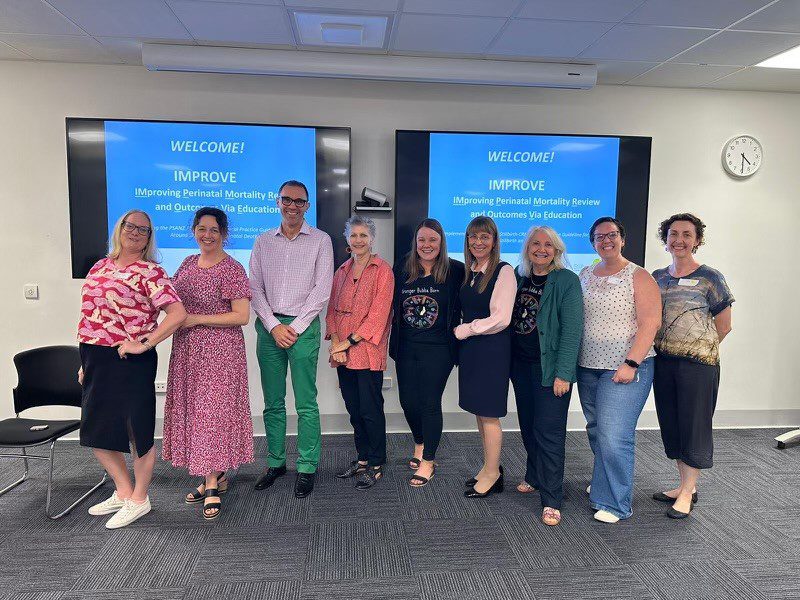
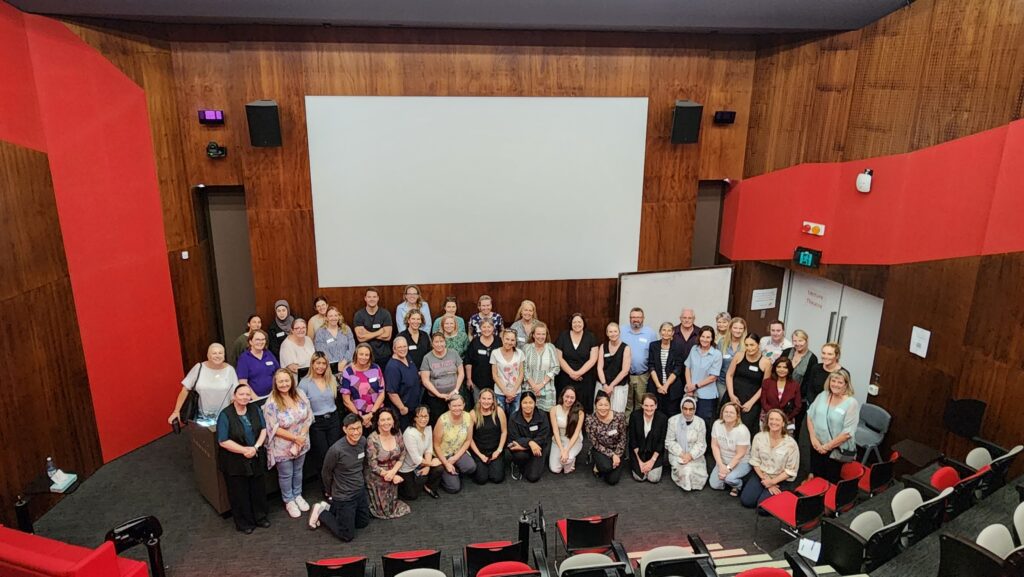
Project Engage
Since May 2023, bereaved parents interested in getting involved in research were invited to join the research involvement registry. Currently over 100 bereaved community members have joined; mostly bereaved mothers, and some fathers, grandparents and siblings. We have conducted welcome chats with approximately a quarter of registrants and share research opportunities and updates via a quarterly newsletter.
Bereaved parents from the research involvement registry have gotten involved in various ways including
The level of engagement and feedback we have received has been incredibly positive, providing evidence that this research involvement registry and accompanying resource is well regarded by the bereaved community. Here's what bereaved parents are saying:
“I found this whole process really fulfilling and worthy of my time - appreciate the inclusion.”
“Such a fulfilling and rewarding time knowing we are trying to help change the future so families either ultimately don't experience loss, or at a minimum have an overall improved experience due to knowledge we have provided to make things better. …thank you for the experience, opportunity, and process of this research group.”
If you are interested in becoming involved, our resource ‘Getting Involved in Stillbirth Research: A guide for bereaved parents’ is available for free via our website. You can sign up to our research involvement registry here.
If you have a research project you would like to advertise in our quarterly newsletter or are looking to involve bereaved parents in your research activities, please get in touch stillbirthcre@mater.uq.edu.au
The PSANZ 2024 Congress is just around the corner, taking place from April 7th to 10th in the beautiful city of Christchurch, New Zealand. Our team is excited to be hosting a symposium during the conference on the 9th April and will also be co-hosting a pre-congress workshop on the morning of 6th April alongside The Australian Preterm Birth Prevention Alliance.
To purchase your ticket for the Pre-PSANZ program, click here.
To purchase your tickets for the PSANZ congress, click here.
We can't wait to see you there!
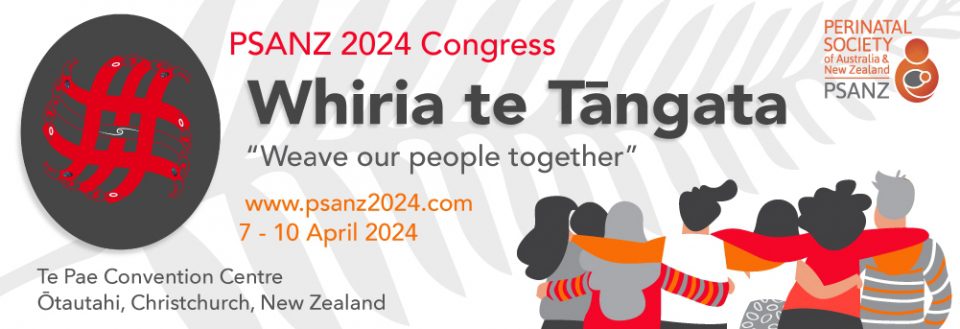
Announcing the 2023 PhD Top-up recipients
Congratulations to the successful recipients of the Stillbirth CRE 2023 PhD Top-up scholarships. These scholarships are designed to support exceptional PhD candidates whose projects align with the Stillbirth CRE's mission. The following applicants have been awarded full scholarships of $9,000 each:
In addition, two applicants were awarded a part-scholarship of $4,500:
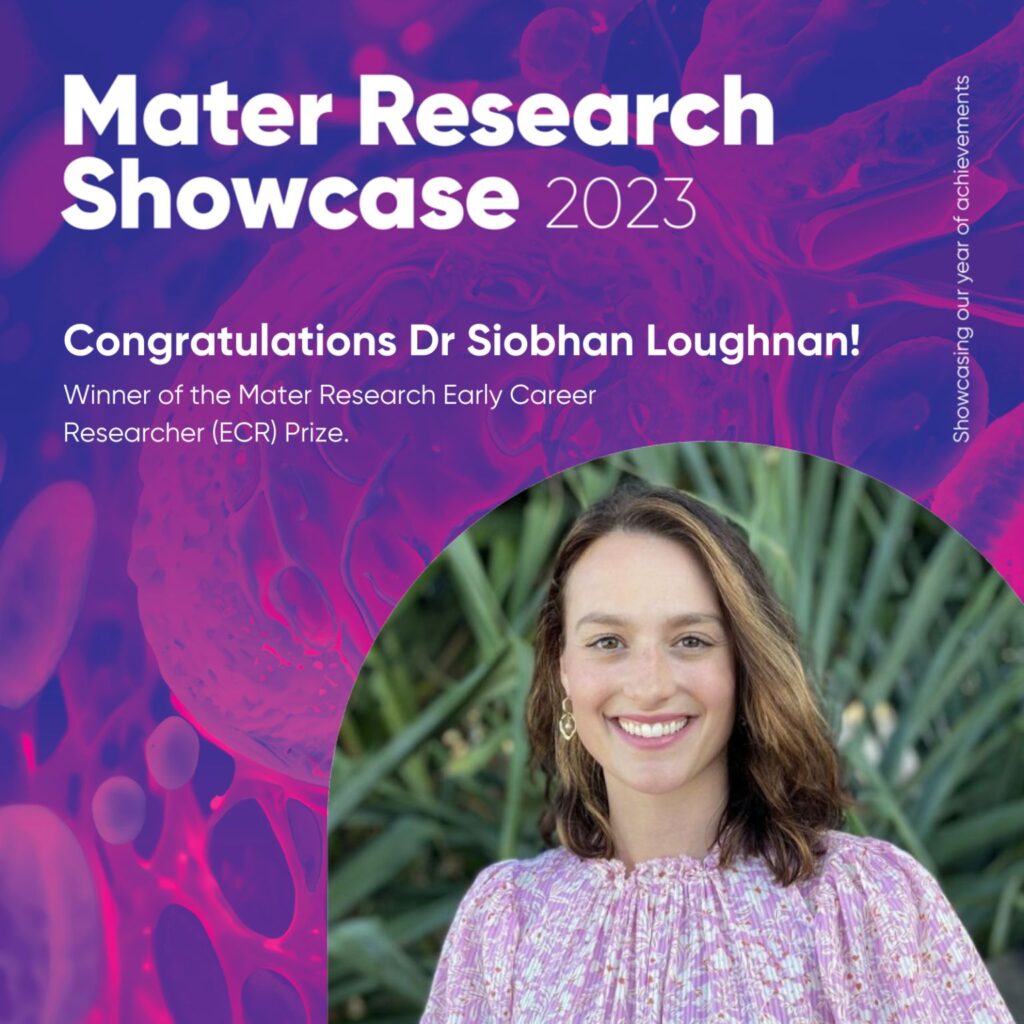
Congratulations to Dr Siobhan Loughnan, winner of the Mater Research Early Career Researcher prize. This prize is awarded to an early career researcher in recognition of exceptional work towards the discovery, translation, and integration of new knowledge into improved healthcare and education practices across Mater.
Siobhan joined the Stillbirth CRE in September 2019, and her research focuses on evidence-based care around stillbirth and neonatal death. She is an active member of the Stillbirth CRE Steering Committee, and her strong publication academic record has resulted in a $980,000 grant as Chief Investigator.
National Stillbirth Research Priorities
This year we have been undertaking a research priority setting exercise to inform our submission of national stillbirth research priorities to the Department of Health and Aged Care (DoHAC).
We consulted with many representatives including bereaved parents, clinicians, researchers, and policy makers across Australia to hear what your research priorities are. Over 150 research questions were proposed during these consultations which were then sent out in a survey for all stakeholders to vote on their top 10 priorities. Following collation of this survey data, we were able to determine a shortlist of 26 research questions.
On Monday, 4th of December 2023, 26 representatives convened in Brisbane to review and refine this shortlist. The forum was a great success, and we came to a consensus of a top 12 list of national stillbirth research priorities. Thank you to everybody who attended the meeting and contributed to this process throughout the year.
We can’t wait to share the resulting priorities with you in the new year, following the submission to DoHAC.
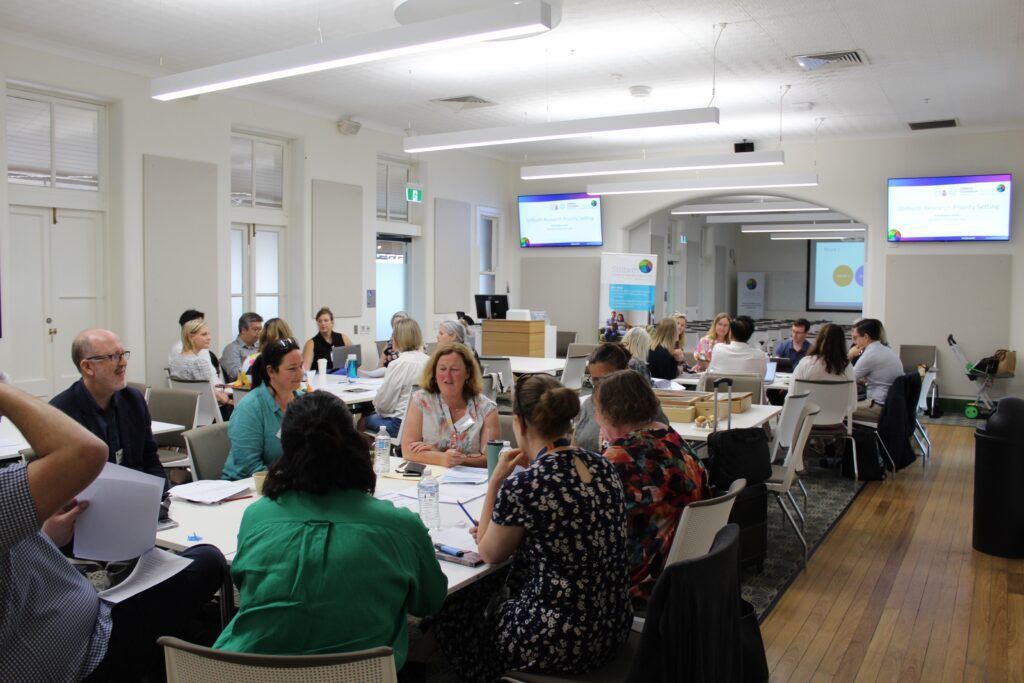
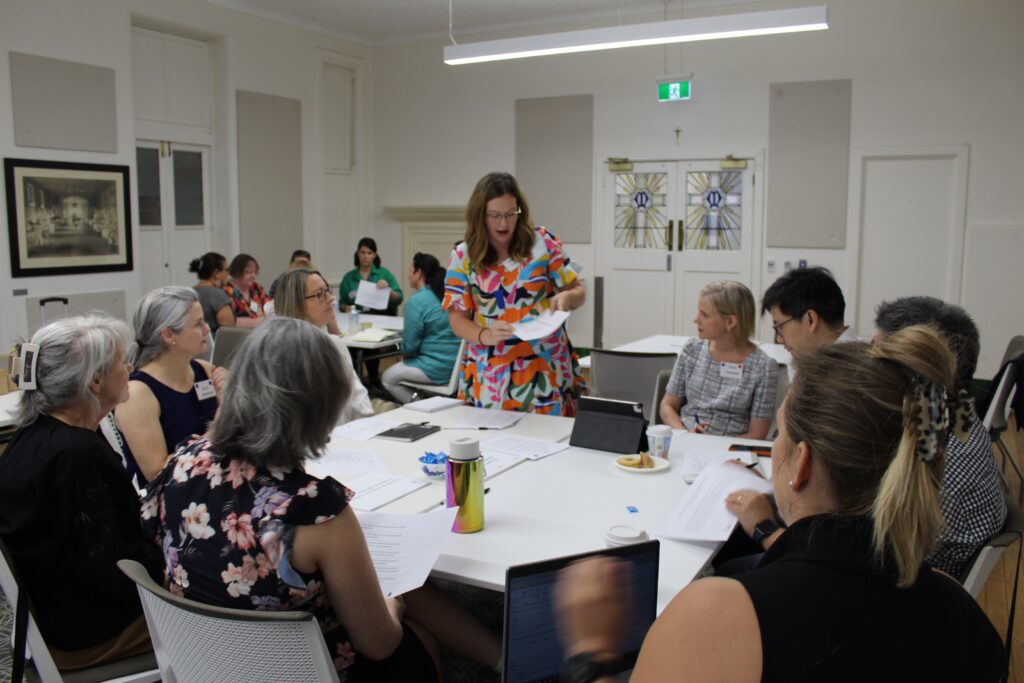
2023 National Stillbirth Forum
Our annual National Stillbirth Forum including the Equity and Diversity forum was held on the 23rd and 24th of October in Brisbane. We brought together a community of clinicians, researchers, parents and policy makers to showcase the incredible work being done nationally to prevent stillbirth and improve care for families after loss. The forum combined presentations, discussion, and interactive workshops to share learnings and connect with others working in this space. A key highlight was the session titled ‘Parent voices to drive change’ with a parent panel discussing ways to improve care for women and families following the devastating loss a baby.
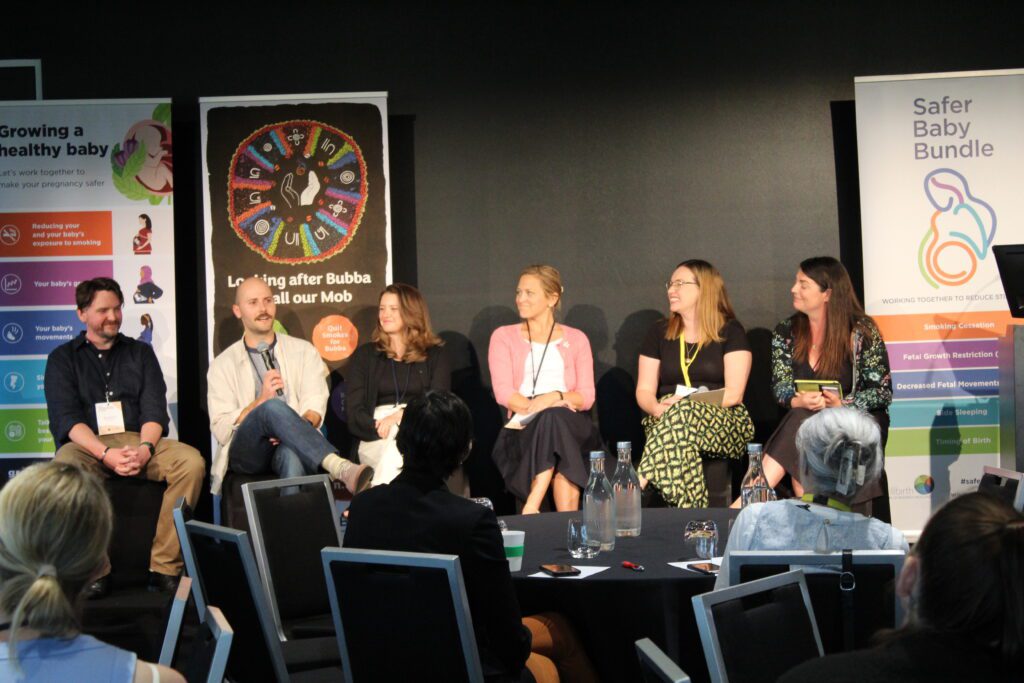
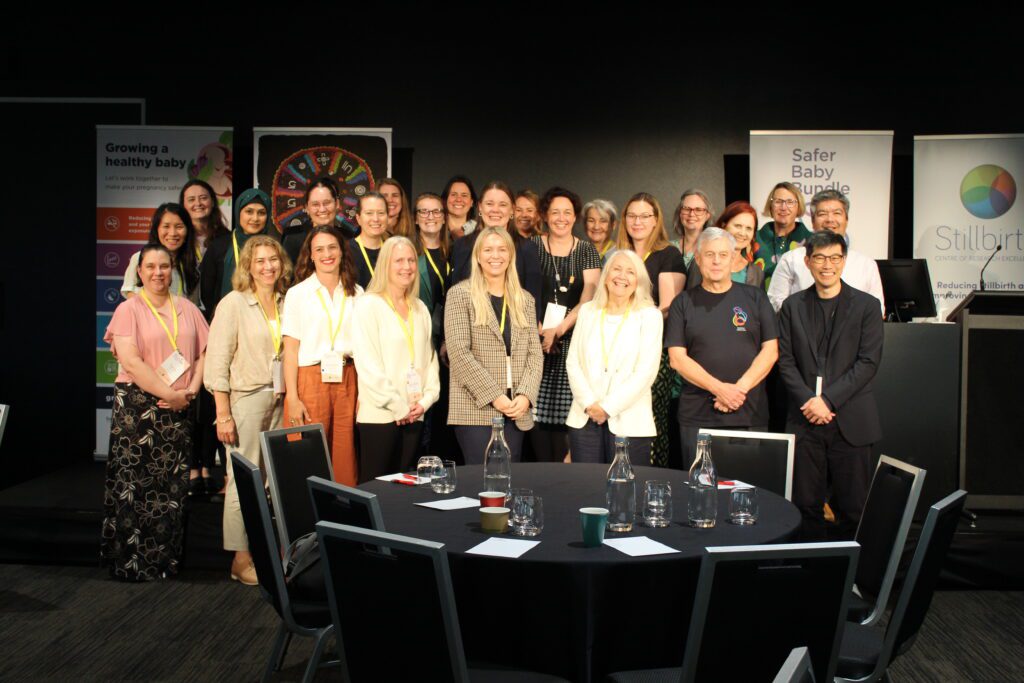
We were excited to officially launch the new culturally adapted Safer Baby resources at the forum. These resources aim to provide Indigenous and migrant and refugee communities with tailored messaging and tools for a safer pregnancy. To learn more about the new resources click here.
The save the date for our 2024 National Stillbirth Forum will be announced soon!
Safer Baby Bundle
Here’s a snapshot of what the Safer Baby Bundle (SBB) team have been up to!
The SBB eLearning remains highly valued amongst clinicians with almost 2000 completing this in the past 12 months! The team has been busy in the past 6 months presenting at various conferences and workshops across the country:
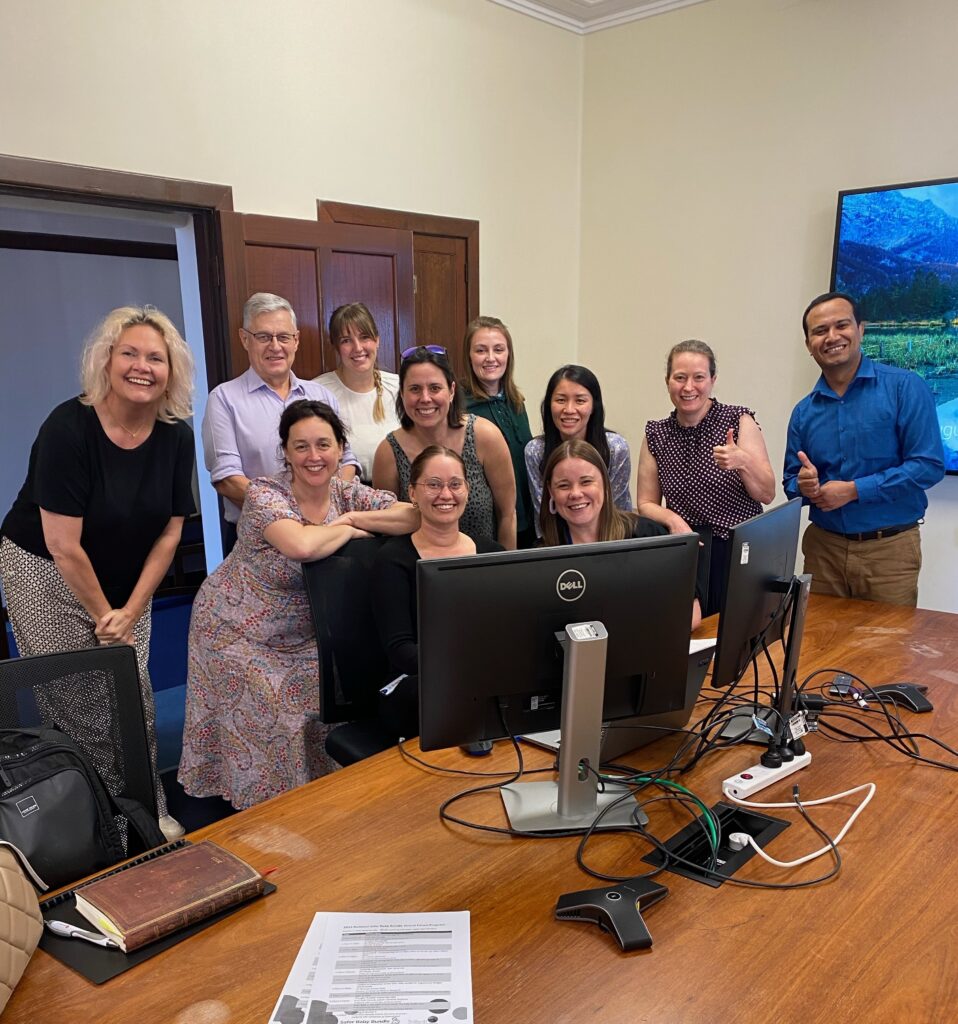
National Safer Baby Bundle (SBB) Virtual Forum
On the 24th of August we hosted the third annual National SBB Virtual Forum. The 4-hour free online event included presentations, interactive discussion sessions, and the first public presentation of the new Timing of Birth Education Program.
There were 355 attendees from across all jurisdictions, showing a continued investment and interest in the initiative from Australian clinicians.
Fetal Growth Restriction workshop in ACT
In partnership with ACT Health we recently ran a Fetal Growth Restriction face to face for 39 maternity healthcare professionals. 100% of participants who completed the post evaluation survey said that the workshop improved their knowledge around detection and management of fetal growth restriction. If you’re interested in hosting a workshop, please get in touch with us via email saferbabybundle@mater.uq.edu.au
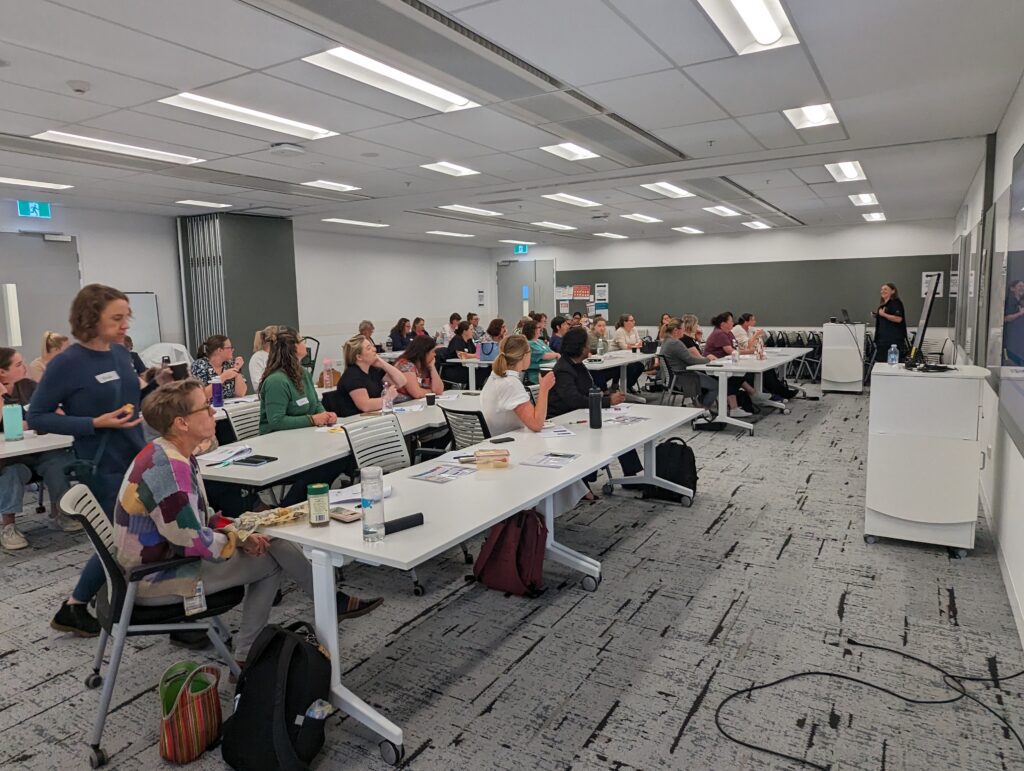
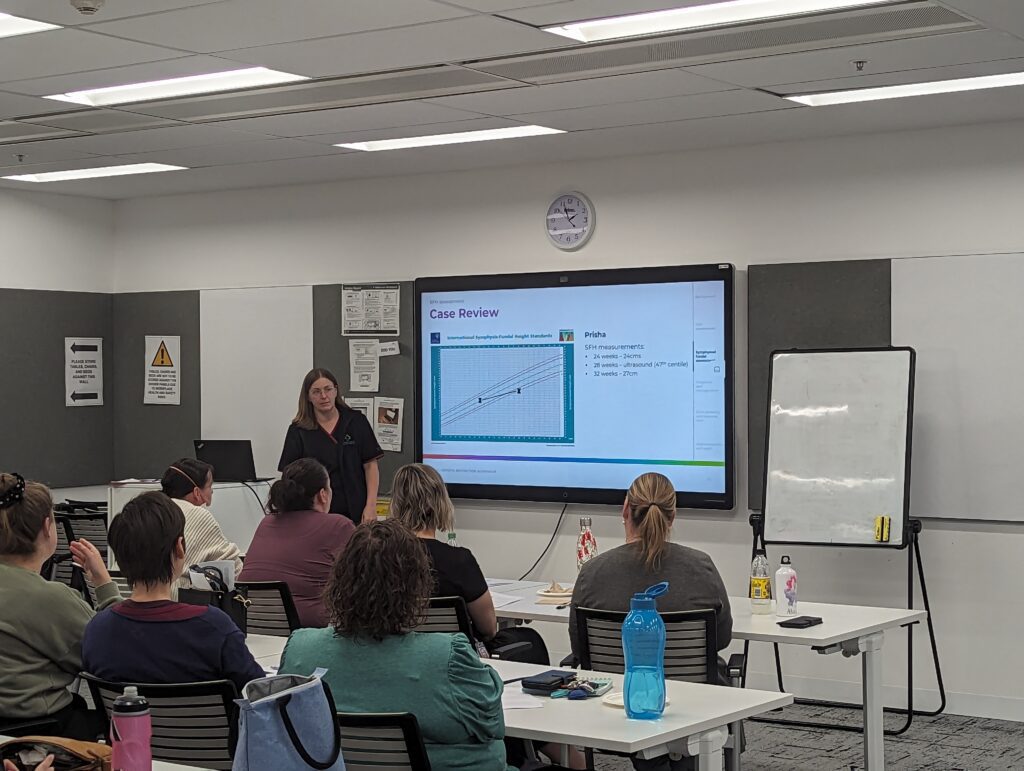
Timing of Birth research program update
The aim of the Timing of Birth (TOB) study is to implement and pilot test a package of resources to improve communication between pregnant women and their healthcare professionals around stillbirth risk, and to promote shared decision-making about optimal timing of birth and increase women’s confidence to make decisions about timing of birth. The resources include an educational program and a clinical decision support tool as well as a decision aid for women. The pilot study involves implementation and evaluation of the resources across 5 selected hospital sites in Queensland.
Early results at the Gold Coast University Hospital indicate that the TOB resources have been received positively by clinical staff. The new resources have also had a positive reception across a multidisciplinary audience.
There has been a strong request for inclusion of more detail on stillbirth risk data, which has been incorporated for use across the remaining study sites. The study team including Prof. David Ellwood (Obstetric Lead) and Tash Cocker (Midwife study coordinator) travelled to Townsville Hospital recently as part of study activities. Staff attended education sessions to find out more about the study and the resources being trialed. Final results from the evaluation are anticipated to be available in mid 2024.
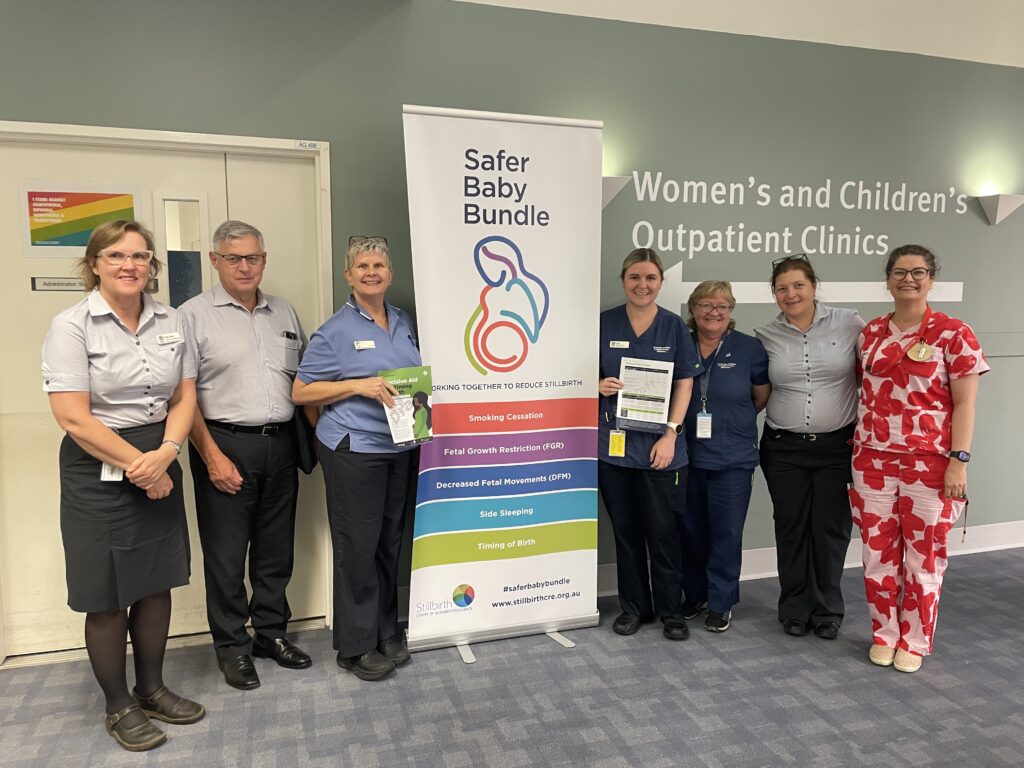
Get to know our researchers!
This week, we had the pleasure of spending a few minutes with Dr Jessica Sexton, where she shared insights into her current projects and why she is passionate about her work here.
Dr Sexton is a Senior Research Fellow at the Stillbirth CRE and Leads the Data to Drive Change Program.
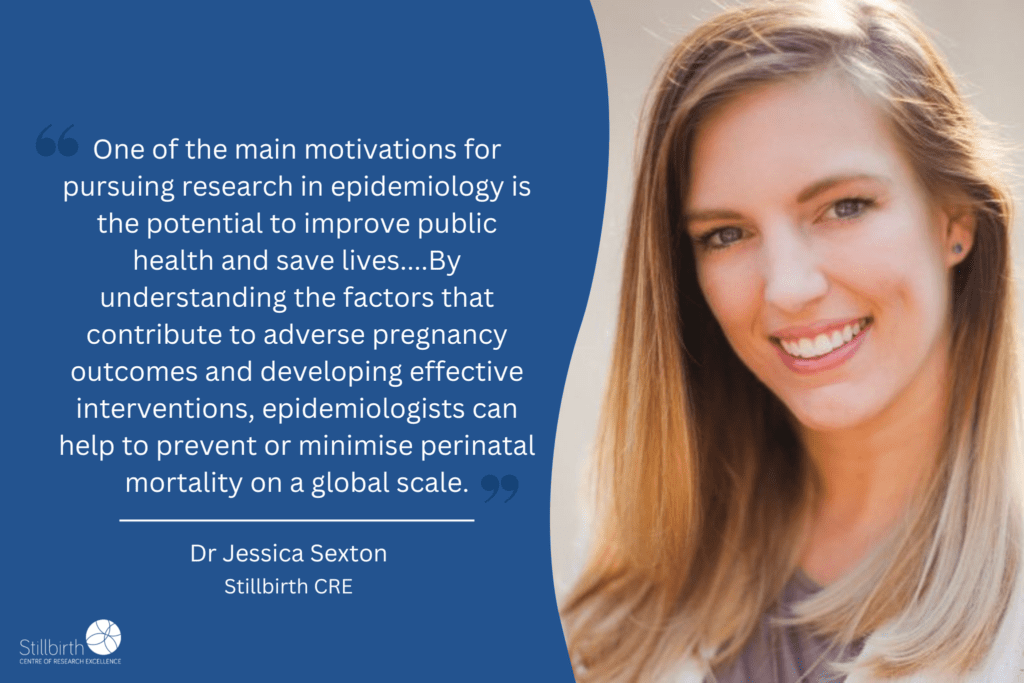
Important new statistics on stillbirth and neonatal death in Australia recently released: Australia's mothers and babies: Stillbirths and neonatal deaths - Australian Institute of Health and Welfare (aihw.gov.au)
Important research paper in The Lancet found more funding needed for stillbirth research: Research funding for newborn health and stillbirths, 2011–20: a systematic analysis of levels and trends
The team have been busy this year publishing results, see below links to the publications that our researchers have contributed to.
BJOG Vulnerable Newborn Series publication: Neonatal mortality risk of large-for-gestational-age and macrosomic live births in 15 countries, including 115.6 million nationwide linked records, 2000–2020
ANZJOG study: Validation of a tool for determining the clinical utility of stillbirth investigations
ANZJOG study: A systematic review of interventions to increase the use of smoking cessation services for women who smoke during pregnancy
BMC Pregnancy and Childbirth study: Ending preventable stillbirths and improving bereavement care: a scorecard for high- and upper-middle income countries
Social Sciences & Humanities Open study: Scoping review of nature-based interventions in bereavement care: What are the implications for perinatal loss?
BMJ Open study: SuPreme Study: a protocol to study the neuroprotective potential of sulfate among very/extremely preterm infants
The Lancet study: Small babies, big risks: global estimates of prevalence and mortality for vulnerable newborns to accelerate change and improve counting
Lancet Regional Health - Western Pacific study: Improving maternal and newborn health and reducing stillbirths in the Western Pacific Region– Current situation and the way forward
ANZJOG study: Parents’ descriptions of labouring with an antepartum fetal death: Findings from the Birthing in Grief study
Showcasing our year of achievements at Mater Research | Mirage News
Once again, thank you for your continued support and we look forward to working with you in 2024!